
The International Rescue Committee (IRC) is a global humanitarian aid, relief, and development nongovernmental organization. Founded in 1933 as the International Relief Association, at the request of Albert Einstein, and changing its name in 1942 after amalgamating with the similar Emergency Rescue Committee, the IRC provides emergency aid and long-term assistance to refugees and those displaced by war, persecution, or natural disaster. The IRC is currently working in about 40 countries and 26 U.S. cities where it resettles refugees and helps them become self-sufficient. It focuses mainly on health, education, economic wellbeing, power, and safety.

Gjakova is the seventh largest city of Kosovo and seat of Gjakova Municipality and Gjakova District. The city has 40,827 inhabitants, while the municipality has 94,556 inhabitants.

The Yugoslav Wars were a series of separate but related ethnic conflicts, wars of independence, and insurgencies that took place in the SFR Yugoslavia from 1991 to 2001. The conflicts both led up to and resulted from the breakup of Yugoslavia, which began in mid-1991, into six independent countries matching the six entities known as republics that had previously constituted Yugoslavia: Slovenia, Croatia, Bosnia and Herzegovina, Montenegro, Serbia, and Macedonia. SFR Yugoslavia's constituent republics declared independence due to unresolved tensions between ethnic minorities in the new countries, which fuelled the wars. While most of the conflicts ended through peace accords that involved full international recognition of new states, they resulted in a massive number of deaths as well as severe economic damage to the region.
Sexual violence is any harmful or unwanted sexual act or attempt to obtain a sexual act by violence or coercion, act to traffic a person, regardless of the relationship to the victim. This includes forced engagement in sexual acts, attempted or completed acts and occurs without the consent of the victim. It occurs in times of peace and armed conflict situations, is widespread, and is considered to be one of the most traumatic, pervasive, and most common human rights violations.
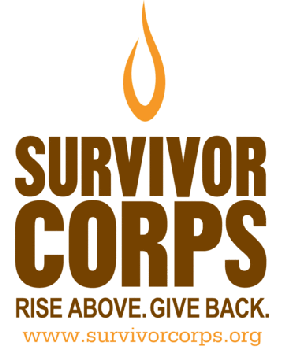
Survivor Corps, formerly known as the Landmine Survivors Network, was a global network of survivors helping survivors to recover from war, rebuild their communities, and break cycles of violence. The organization operated programs in Albania, Armenia, Azerbaijan, Bosnia-Herzegovina, Burundi, Colombia, Croatia, El Salvador, Ethiopia, Georgia, Jordan, Kosovo, Macedonia, Montenegro, Serbia, Uganda, Rwanda, the United States and Vietnam.
Peer support occurs when people provide knowledge, experience, emotional, social or practical help to each other. It commonly refers to an initiative consisting of trained supporters, and can take a number of forms such as peer mentoring, reflective listening, or counseling. Peer support is also used to refer to initiatives where colleagues, members of self-help organizations and others meet, in person or online, as equals to give each other connection and support on a reciprocal basis.
A mine clearance organization, or demining organization, is an organization involved in the removal of landmines and unexploded ordnance (UXO) for military, humanitarian, or commercial reasons. Demining includes mine clearance, as well as surveying, mapping and marking of hazardous areas.

The economy of Kosovo is a transition economy. Kosovo was the poorest province of the former Yugoslavia with a modern economy established only after a series of federal development subsidies in the 1960s and the 1970s.
The United Nations International Day in Support of Victims of Torture is an international observance held annually on 26 June to speak out against the crime of torture and to honour and support victims and survivors throughout the world.
This is a day on which we pay our respects to those who have endured the unimaginable. This is an occasion for the world to speak up against the unspeakable. It is long overdue that a day be dedicated to remembering and supporting the many victims and survivors of torture around the world.
On this International Day in Support of Victims of Torture, we express our solidarity with, and support for, the hundreds of thousands of victims of torture and their family members throughout the world who endure such suffering. We also note the obligation of States not only to prevent torture but to provide all torture victims with effective and prompt redress, compensation and appropriate social, psychological, medical and other forms of rehabilitation. Both the General Assembly and the Human Rights Council have now strongly urged States to establish and support rehabilitation centers or facilities.
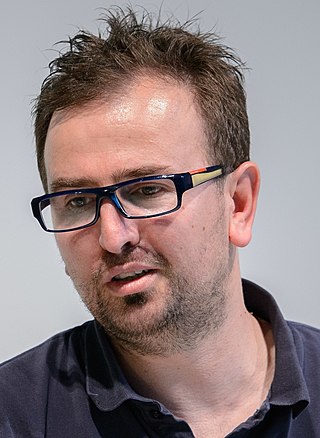
Jeton Neziraj is a playwright from Kosovo. He was the Artistic Director of the National Theatre of Kosovo and now he is the Director of Qendra Multimedia, a cultural production company based in Prishtina.

Kosovo made its Olympic debut as a member state in 2016. Its team is organized by the Olympic Committee of Kosovo (OCK), created in 1992 and recognized by the International Olympic Committee on 9 December 2014. It won its first medal in its debut appearance in 2016, when judoka Majlinda Kelmendi took gold in the women's -52 kg category. In the 2020 Tokyo Olympics, Nora Gjakova won gold in the women's judo -57 kg class, and Distria Krasniqi won gold in the women's judo -48 kg class.
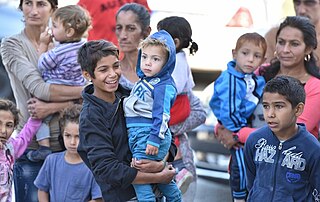
The Xoraxane in Bosnia and Herzegovina are the largest of the 17 national minorities in the country, although—due to the stigma attached to the label—this is often not reflected in statistics and censuses.
International Development and Relief Foundation (IDRF) is a Canadian non-profit organization dedicated to linking Canadian and Muslim communities with overseas development projects, both humanitarian emergency assistance and long term development projects in Asia, Africa, the Middle East, Eastern Europe, and the Americas, based on Islamic principles of human dignity, self-reliance, and social justice.
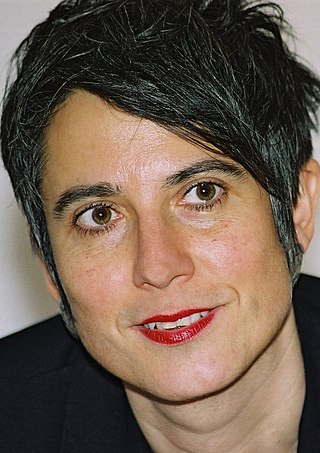
Monika Hauser is a Swiss-born Italian physician gynecologist and humanitarian. She is the founder of Medica Mondiale, an internationally renowned women's rights and aid organization. Hauser lives and works in Cologne.
The World Veterans Federation (WVF) is the world's largest international veteran organisation. The federation consists of 172 veterans organizations from 121 countries representing some 60 million veterans worldwide.

The United Nations Police (UNPOL) is an integral part of the United Nations peace operations. Currently, about 11530 UN Police officers from over 90 countries are deployed in 11 UN peacekeeping operations and 6 Special Political Missions. The "mission of the UN Police is to enhance international peace and security by supporting Member States in conflict, post-conflict and other crisis situations to realise effective, efficient, representative, responsive and accountable police services that serve and protect the population".

INTERSOS is an international humanitarian organization, based in Italy, which intervenes in emergencies and crises to bring immediate aid to people whose lives are threatened by conflict, violence, extreme poverty, and natural or artificial disasters.

Health in Bosnia and Herzegovina was impacted by the Balkan War of the early 1990s, during which Bosnia and Herzegovina declared their independence. Bosnia faced many challenges during the war, including bombings throughout the country that ruined much of the infrastructure. Parallel regimes took over Bosnia and flipped the country upside down with land mines, bullets, and bombings. The war displaced over 800,000 refugees and killed over 100,000 people. The war in Bosnia also consisted of an ethnic "cleanse" of Bosnian Muslims initiated by Bosnian Serbs, which included containment of Bosniaks in concentration camps. The war ended with NATO involvement and the Dayton Agreement in 1995. The Dayton Agreement acknowledges Bosnia and Herzegovina as a democratic country and the country is moving toward the basic principals that accompany that, such as civil rights and equality. During the war there was minimal attention given to the standard of health and major public health concerns, such as pest control, hygiene, disinfection, and import and export programs, were all interrupted or stopped. The war affected Bosnia in many ways. The war torn country not only lost much of the infrastructure, but the economy and the governmental system were also affected. It is estimated that there are still thousands of people living as refugees and a large portion of the population still fall under the United Nations High Commission of Refugees category of a refugee or displaced person. The shortcomings of the current health care system include the lack of communication between health care centers, lack of skills, and lack of standards that are uniform throughout the country.
The number of children in armed conflict zones are around 250 million. They confront physical and mental harms from war experiences.
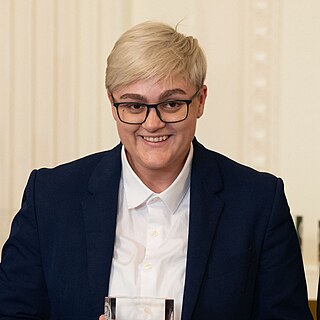
Ajna Jusić is a Bosnia and Herzegovina advocate for children, like herself, who were born after rape during war. She founded an organisation, Forgotten Children of War, and both she and the organisation have won awards.













